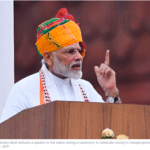Pakistan has returned the quota allotted by Saudi Arabia for the Hajj pilgrimage, as the number of applications fell short of the available seats. This decision has been taken to save $24 million, as the government would have to pay this additional amount for accommodation. The religious affairs ministry has confirmed that the government scheme quota of eight thousand has been returned, marking the first time in Pakistan’s history that such an action has been taken.
The government had earlier announced that there would be no balloting for the Hajj applicants, as the authorities could foresee a shortage of applicants. This change demonstrates the significant impact of inflation in the country. The federal government had long demanded an increase in the quota, but Pakistan failed to meet the allotted quota. This year, Pakistan was given the full share of the pilgrimage after a long time.
The government considered allocating the unused Hajj quota to private Hajj operators, but this was deemed too risky due to the fear that private operators might buy dollars from the open market. Therefore, it was decided to surrender the unutilized quota. This decision marks a significant development in Pakistan’s history and emphasizes the country’s economic challenges.
Pakistan’s decision to surrender the Hajj quota allocated by Saudi Arabia due to a shortage of applicants is a significant development in the country’s history. The decision to save $24 million highlights the economic challenges faced by the country. The fear of private operators buying dollars from the open market resulted in the surrender of the unused quota. This move demonstrates the impact of inflation and the financial constraints faced by the country.














